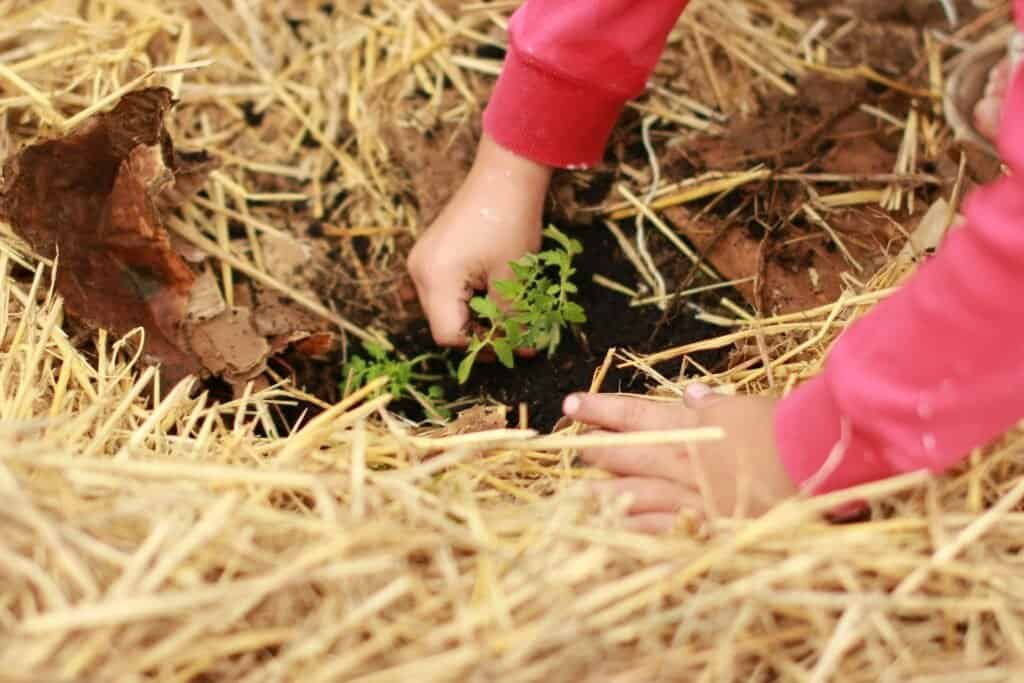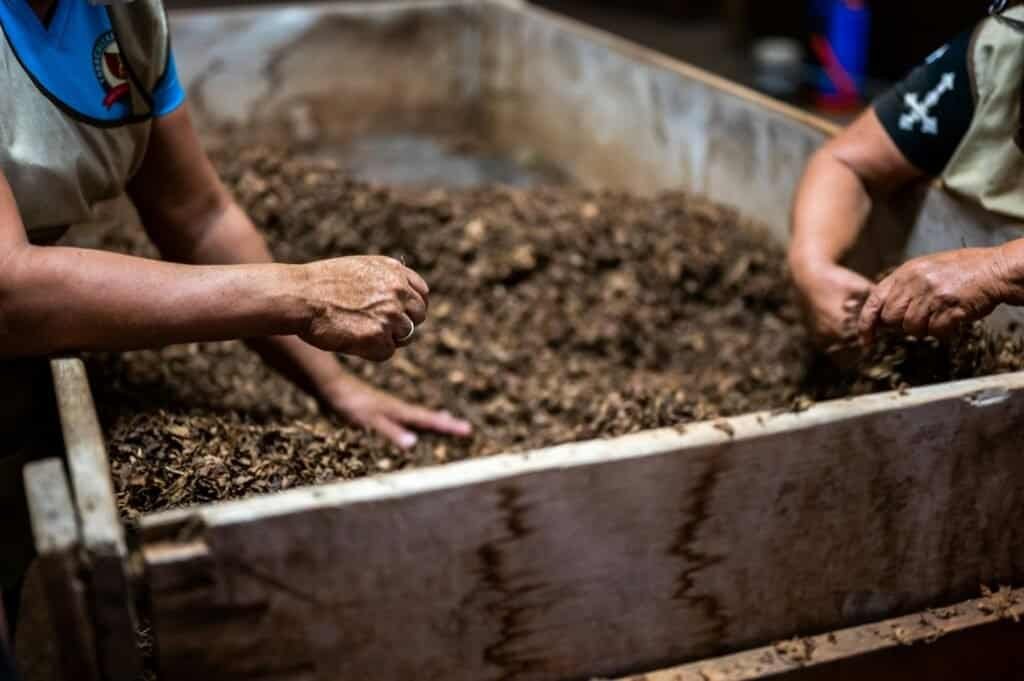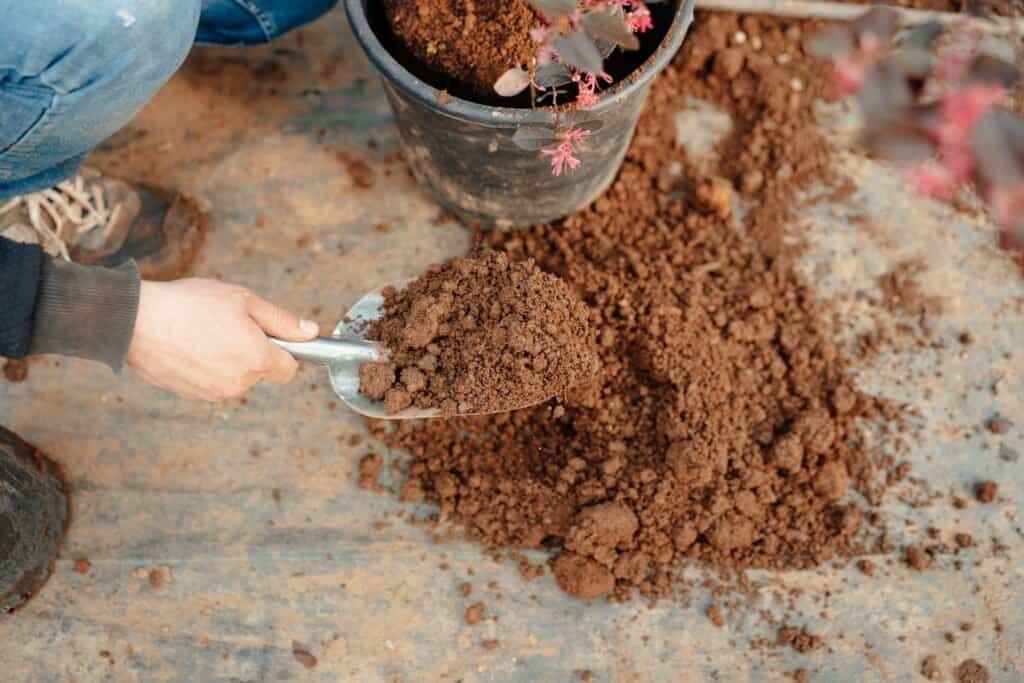Many gardeners wonder whether their compost should smell. The process by which kitchen scraps and grass clippings decompose the organic matter involves a careful balance of nitrogen and carbon. When this balance is achieved, compost should smell like dirt, a pleasant earthy aroma indicating a healthy transformation. However, issues arise when the pile is too wet or too dry, leading to compost odor that can attract unwanted pests. By understanding the role of greens and browns, and the importance of heating up and breaking down materials, gardeners can manage compost odors effectively.
Understanding Compost Odors
Compost odors are often a sign that the microbial breakdown of organic materials isn’t proceeding as it should. When managed correctly, compost emits a natural, earthy scent. Unpleasant odors typically indicate an imbalance in the compost’s environment, whether from excess moisture, an improper ratio of materials, or a lack of sufficient airflow. Recognizing and addressing these issues is key to restoring a healthy composting process.
What Should Healthy Compost Smell Like?
Healthy compost exudes a fresh, earthy odor similar to that of fertile garden soil. This natural scent is the result of organic materials being efficiently broken down by microorganisms. When the compost heap is properly balanced with kitchen scraps, dry leaves, and other carbon-rich elements, it should not emit foul odors. If your compost smells like fresh earth, it’s a sign that the decomposition process is thriving and that beneficial microbes are at work.
A well-maintained compost pile, rich in organic materials, should not have an offensive smell. Instead, the aroma should be reminiscent of a forest floor after a rain — damp, organic, and full of life. Keeping a close eye on moisture levels and turning the pile regularly are simple ways to ensure that your compost remains healthy and odor-free.

Common Causes of Unpleasant Compost Smells
Compost smells can become a problem when the pile’s environment is out of balance. Excess moisture can lead to anaerobic conditions, where the lack of oxygen causes the organic matter to decompose slowly and produce a foul odor. An imbalance in the ratio of greens and browns, such as too many grass clippings without enough dry leaves, can also lead to unpleasant smells. Additionally, including meat and dairy in the compost bin can create odor problems and attract pests.
Leaving your bin without adequate airflow can cause the compost to become compacted, leading to anaerobic decomposition and a resultant stinky pile. Furthermore, a compost heap that is either too wet or too dry can slow down the decomposition process, causing materials to rot rather than break down properly. By understanding these common causes, you can take steps to prevent and address unwanted compost odors.
Excess Moisture in the Mix
Excess moisture is one of the primary culprits of foul compost odor. When the pile is too damp, it can lead to anaerobic conditions, where the organic materials begin to ferment rather than decompose, emitting a smell akin to rotting garbage. To counter this, ensure proper drainage and adjust the moisture by adding more dry, carbon-rich materials to absorb excess liquid.
Imbalance of Greens and Browns
An imbalance of greens and browns can throw off the compost’s harmony, leading to odors. Too many greens, such as kitchen scraps, add excess nitrogen, while not enough browns, like shredded newspaper or dry leaves, lack the carbon needed to balance the mix. By monitoring and adjusting the green-to-brown ratio, leaving your bin better balanced, you can maintain a sweet-smelling compost.
The Trouble with Meats, Fats, and Dairy
Meats, fats, and dairy should generally be avoided in a compost heap due to their tendency to spoil and create odor problems. These materials can decompose to produce sulfurous compounds, similar to the smell of rotting eggs, which not only is unpleasant but can also attract pests. It’s best to leave these items out of your compost to maintain a healthy and odor-free pile.
Insufficient Aeration and Oxygen
Insufficient aeration and a lack of oxygen can quickly turn a healthy compost heap into an anaerobic and smelly mess. Organic materials need oxygen to decompose effectively, and without it, the pile can become compacted and start emitting foul odors. Regularly turning the compost and adding structured materials like dry leaves or dry grass can help introduce air and promote aerobic conditions.

The Science of Composting Without the Stink
Composting doesn’t have to smell like rotting waste. By understanding the science behind it, you can easily manage your compost pile to avoid unpleasant odors and create nutrient-rich soil for your garden.
The Role of Beneficial Bacteria in Odor Management
Beneficial bacteria play a pivotal role in breaking down organic materials into healthy compost. These microorganisms thrive in well-balanced compost tumblers and piles, where they consume household waste and suppress odors. By creating an ideal environment for these bacteria, you can ensure an odor-free composting process.
Optimal Compost Moisture Levels
Maintaining optimal moisture levels is crucial for a healthy composting process. The pile should be as wet as a wrung-out sponge to support microbial activity without becoming anaerobic. Striking this balance is key to odor prevention and efficient decomposition.
Achieving the Right Green to Brown Ratio
Getting the right green-to-brown ratio is essential for a sweet-smelling compost. Greens provide nitrogen, while browns offer carbon. A general guideline is to aim for a mix of one part green to three parts brown. Leaving your bin with a balanced mixture will minimize odors and accelerate decomposition.
Aeration Techniques to Reduce Odors
Proper aeration techniques, like turning the pile regularly or using a compost tumbler, can significantly reduce compost odors. These methods introduce oxygen, which is crucial for aerobic decomposition and the suppression of offensive smells.
Practical Tips to Prevent Compost Odors
Preventing compost odors is straightforward with the right approach. Regularly turning the pile, maintaining the correct moisture level, and balancing your greens and browns are all effective strategies for keeping your compost fresh.
Use an Electric Composter for Convenience
For those looking for a hassle-free composting experience, electric composters are a convenient solution. These devices automate the composting process, ensuring optimal conditions for odorless decomposition.
Lomi as a Modern Solution
For those looking to shop for a cutting-edge composting appliance, Lomi is an intriguing option. This electric composter transforms kitchen scraps into nutrient-rich soil with the touch of a button, streamlining the composting process without any unpleasant smells.
The Benefits of Using a Compost Tumbler
Compost tumblers enhance the composting process by effortlessly creating air pockets essential for decomposition. This enclosed compost bin or pile alternative simplifies turning, accelerates composting, and helps manage odors, making it an appealing choice for many gardeners.
Strategies for Outdoor Composting
Effective strategies for outdoor composting include monitoring compost piles for moisture levels and turning regularly. A well-maintained backyard compost pile minimizes the chance that compost is smelling unfavorably, ensuring a successful outdoor compost experience.
Importance of Covering Your Pile with Dry, Brown Materials
Covering stinky compost problems can be mitigated by adding dry, brown materials like pine needles, sawdust from untreated wood, dried grass, and even toilet paper rolls. These additions help balance the carbon ratio and absorb excess moisture, fostering a healthier composting environment.
Top 5 Odorless Compost Bins for Indoor Use
Indoor compost bins designed to handle vegetable scraps and coffee grounds without odor are a boon for urban dwellers or those with limited outdoor space.
1. EPICA Stainless Steel Compost Bin
The EPICA stainless steel compost bin is designed to fit seamlessly into a kitchen setting, providing a convenient way to store household waste without attracting fruit flies. Its elegant design and effective sealing technology keep odors contained.
2. Lomi Kitchen Composter
Lomi Kitchen Composter is a sleek, countertop device that turns food scraps into compost with ease. Its high-tech approach to composting means you can reduce waste without worrying about any lingering smells in your kitchen.
3. Bokashi Kitchen Composter
The Bokashi Kitchen Composter uses anaerobic composting to efficiently break down organic waste. This method minimizes odor and speeds up the decomposition process, making it an excellent choice for those who want to compost indoors without the smell.
4. Bamboozle Food Compost Bin
Constructed from sustainable materials, the dishwasher-safe Bamboozle Food Compost Bin is crafted to minimize odor while contributing to the decomposition process in an eco-friendly manner. Its compact design fits nicely in any kitchen.
5. Uncommon Goods’ Living Composter
The Uncommon Goods’ Living Composter doubles as a worm composter, turning scraps into valuable worm castings. This method is odorless and an innovative way to shop for a compost solution that also serves as a conversation piece.

Troubleshooting Common Compost Smells
Addressing odor issues is a key part of maintaining a healthy compost pile. Understanding the causes of common smells can lead to quick and effective solutions.
When Compost Smells Like Ammonia
When your compost smells like ammonia, it’s often a sign that the compost pile is too wet, or that there is an excess of nitrogen-rich materials. Balancing the ingredients and ensuring proper aeration can prevent your compost might smelling like ammonia or rotten eggs.
Addressing Compost That Smells Like Rotten Eggs
If your compost emits a smell similar to rotten eggs, it may be producing hydrogen sulfide due to anaerobic conditions. Adding more browns and turning the pile can reintroduce oxygen and eliminate these odors.
Why Does My Compost Smell Like Poop?
Compost that smells like poop is often a sign of too much green material or a lack of oxygen. Adjusting the green-to-brown ratio and turning the pile more frequently can help mitigate this issue and keep your compost smelling earthy.
Nurturing a Healthy Compost Pile
Nurturing a compost pile is akin to caring for a garden; it requires attention and knowledge. Regular maintenance ensures that the compost remains healthy and effective for enriching the soil. By monitoring moisture levels, turning the pile, and balancing green and brown waste, you create an environment where beneficial microorganisms thrive, breaking down organic matter into nutrient-rich humus.
The Importance of Regular Maintenance
Regular maintenance is key to a thriving compost pile. Like a garden, it flourishes with consistent care, which involves monitoring moisture, managing waste inputs, and ensuring adequate aeration. Neglect can lead to issues such as unpleasant odors or a slowed decomposition process, making regular check-ins essential for a successful composting experience.
Knowing When to Turn Your Compost
Turning the pile is critical for aeration and speeding up the composting process. It should be done when the center of the pile feels warm or after adding new material. This practice distributes air and moisture, which helps maintain the pile’s health and prevents anaerobic conditions that can cause foul odors.
Recognizing the Signs of a Balanced Compost Pile
A balanced compost pile exhibits a combination of moist, crumbly soil-like texture, a pleasant earthy smell, and a mixture of decomposed green and brown waste. When you observe these characteristics, it’s a sign that your compost is well-maintained and on its way to becoming a valuable addition to your garden.
The Essence of Odor-Free Composting
To achieve an odor-free composting experience, it’s essential to understand the core principles that keep a compost bin from stinking. Adequate air circulation plays a pivotal role in avoiding a stinky compost pile, as it helps to accelerate the breakdown of organic matter and prevents anaerobic conditions that can lead to unpleasant odors. Furthermore, it’s important to note that certain materials, like pet waste, should be avoided in home composting systems due to potential health risks and the likelihood of creating offensive smells. By adhering to these fundamental practices, composters can nurture a healthy, smell-free environment for decomposing organic waste.


